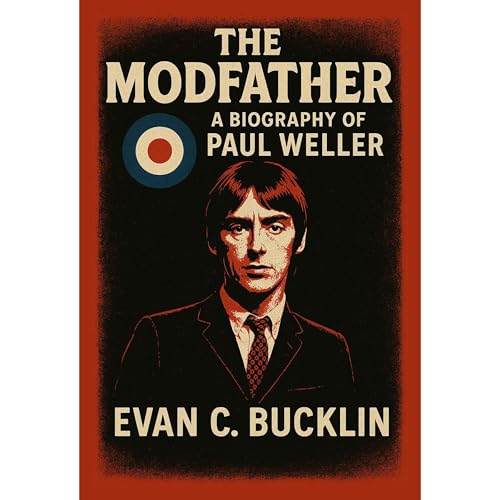
The Modfather: A Biography of Paul Weller
Tracing Weller’s journey from The Jam to The Style Council and solo reinvention, exploring British culture, music history, and his enduring influence
No se pudo agregar al carrito
Add to Cart failed.
Error al Agregar a Lista de Deseos.
Error al eliminar de la lista de deseos.
Error al añadir a tu biblioteca
Error al seguir el podcast
Error al dejar de seguir el podcast
$0.00 por los primeros 30 días
Compra ahora por $6.99
-
Narrado por:
-
Virtual Voice
-
De:
-
Evan C. Bucklin

Este título utiliza narración de voz virtual
Few figures in modern British music have navigated as many transformations—or inspired as many generations—as Paul Weller. From his beginnings in Woking in the late 1950s to his rise as leader of The Jam during the punk explosion of 1977, Weller has been more than a songwriter. He has been a cultural compass. His lyrics have documented working-class life, Thatcher-era disillusionment, and the enduring search for authenticity. His guitar attack carried the velocity of punk, yet his aesthetic drew on the sharp codes of mod style, setting him apart from contemporaries.
This biography follows Weller’s story in full chronological sweep. The Jam’s ascent, from youth-club rehearsals to number one singles such as “Going Underground” and “Town Called Malice,” established him as the sharpest chronicler of his generation. Yet at their peak he dismantled the band, refusing to become trapped by success. With keyboardist Mick Talbot, he formed The Style Council, expanding into soul, jazz, and continental pop. Their records, from Café Bleu to Our Favourite Shop, married activism with artistry, aligning Weller with movements like Red Wedge and bringing politics into the pop mainstream.
The late 1980s saw decline, but Weller’s solo rebirth in the 1990s placed him at the heart of Britpop. Wild Wood and Stanley Road revealed an artist bridging eras, revered by Oasis, Blur, and a new generation. From there, he continued to shed skins: the raw immediacy of Heavy Soul, the reflective textures of Heliocentric and Illumination, the sprawling eclecticism of 22 Dreams, and the late-career triumphs of True Meanings, On Sunset, and Fat Pop.
Each chapter situates Weller within the broader history of British culture: the strikes and stagnation of the 1970s, Thatcherism and protest in the 1980s, the swagger of Britpop in the 1990s, and the shifting soundscape of the 2000s and beyond. Drawing on press archives, chart records, recording notes, and contemporary reception, the book delivers documentary-grade detail with storytelling momentum. It portrays Weller not as a static icon but as a restless chameleon, a musician whose refusal to stand still became his method of survival.
For fans, scholars, and anyone interested in how one artist can embody half a century of cultural change, Paul Weller: The Modfather’s Evolution offers the definitive portrait. It captures the triumphs, tensions, and transformations of a career that has never lost relevance, presenting Weller as both musician and mirror of modern Britain.



